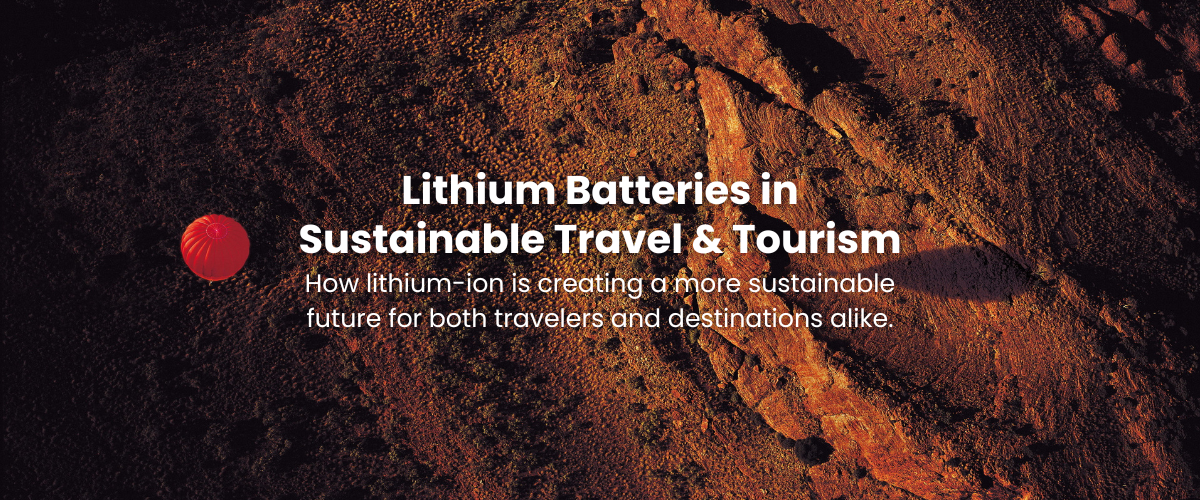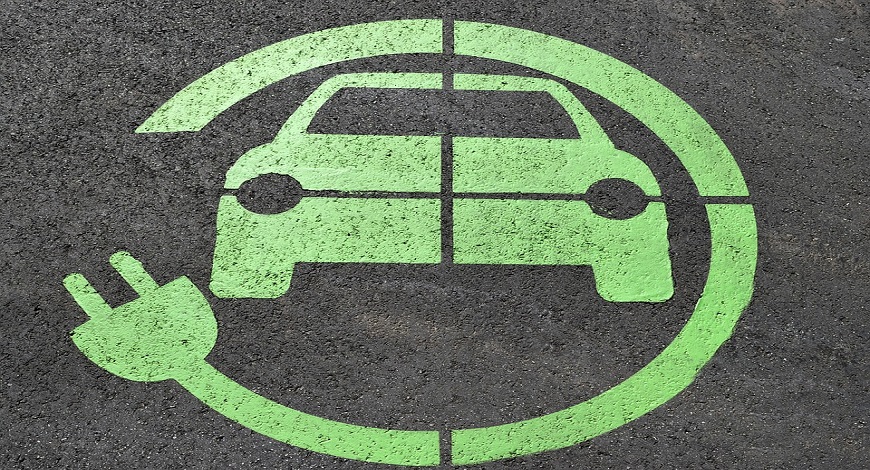
Eco-friendly travel is a new and emerging concept within tourism, aimed at reducing the environmental impact and footprint of travel experiences, tourism infrastructure, and the tourists themselves. Responsible eco-friendly tourism focuses on preserving natural resources, supporting local communities, and minimizing waste generation.
The utilization of lithium batteries in different aspects of sustainable travel aligns harmoniously with circular economy principles. Enabled by modern Lithium battery innovations, we can power our adventures while treading ever lightly on the planet by supporting sustainable tourism. Previously, we discussed how Lithium-ion batteries are making workplaces green, Li-ion batteries in the field of sports, and how batteries are transforming the field of healthcare through resilient infrastructure and maximizing the accessibility of medical devices.
This edition of Battery Decoded will explore various specific use cases for lithium battery-powered equipment in eco-friendly travel scenarios, highlighting their benefits both from an environmental perspective and a traveler’s standpoint.
Lithium-ion batteries play a crucial role in powering electric vehicles for eco-friendly tourism, a key component of sustainable travel. Lithium batteries are lightweight, have excellent electricity conductance, are highly versatile, and can withstand high temperatures, making them ideal for energy storage.
In addition to personal equipment, lithium battery-powered technologies are also driving advancements in sustainable public transport systems worldwide. Electric buses are becoming increasingly prevalent in major cities around the globe for sustainable travel as governments, transportation authorities, and startups strive to reduce pollution and increase diverse and sustainable urban mobility options and facilitate eco-friendly tourism.
Commonly associated with sustainable travel and tourism are Electric bikes powered by lithium-ion batteries. E-bikes have become an increasingly popular mode of transportation for eco-conscious tourists and travelers. These bikes provide a convenient and emissions-free way to explore cities or navigate through rugged terrains without relying on fossil fuels.
Electric mountain bikes also deliver considerable torque and agility, the kind ideal for thrillseekers. However, starting a business based on Electric bikes and similar low-cost EV rentals for eco-friendly tourism demands a robust and sustainable business model that balances profit and growth.
By incorporating lithium battery-powered electric bikes into their offerings, tour operators can attract environmentally conscious adventurers who seek thrilling experiences without compromising on sustainability.
Lithium-ion batteries offer several benefits for camping gear. They require less maintenance and have a higher power density than lead-acid batteries, which also makes them more portable. Lithium batteries also last 2-3 times longer than lead-acid batteries, resulting in fewer battery replacements.
Lithium batteries can be installed in any Residential Vehicle (RV) that accepts house batteries and can be installed sideways, upside-down, and inside the RV without ventilation. Lithium Battery Energy Storage Systems (BESS) inside RVs serve the same function as Solar power ESS or Backup UPS for homes or small facilities, making them ideal for eco-friendly tourism
Lithium-ion batteries are crucial for powering electric public transport. They have a higher energy density relative to their physical size, a low self-discharge rate, and zero to low memory effect. They are also safe to use and convenient with no noise pollution, making them ideal for public transport as well as eco-friendly tourism.
Electric public transport powered by Lithium-ion batteries offers several other advantages. EV proliferation in public transport is a key part of the energy transition, with demand for lithium-ion batteries increasing as the world increasingly swaps fossil fuel power for emissions-free electrification. Along with Eco-friendly tourism, Lithium batteries are thus also important for decarbonizing global transport and energy sectors.
In the tourism industry, lithium-ion batteries are used in various ways. For instance, they power electric tour buses, boats, and even small planes, providing a more sustainable and quieter alternative to traditional gasoline-powered vehicles. They also power portable devices like cameras, drones, and other equipment that tourists use to capture their experiences.
Sustainable tourism also overlaps with sustainable sports that use Lithium-ion batteries, as eco-tourism is all about minimizing the impact on the environment and promoting sustainability.
In remote or barely accessible landscapes, lithium-ion batteries can be even more fundamental.
Li-ion batteries can power eco-lodges and other off-grid accommodations with renewable energy stored from solar panels, and wind turbines. Electric vehicles can offer quieter safari drives in wildlife reserves, reducing noise & air pollution and minimizing disturbance to animals.
Lithium battery technology becomes fully circular when batteries are recycled at high efficiencies, and repurposed before recycling. LOHUM produces Second-life battery energy storage systems by repurposing end-of-first-life EV batteries. Repurposed batteries are a cost-effective way to switch to sustainable energy, reduce dependence on the power grid, and insulate against periods of inconsistent power supply, or even energy crises. Reports published on Deloitte highlight that repurposed Second Life batteries may be as much as 50% to 70% more economical than new batteries and ESS.
Second Life batteries, tested, repackaged to the desired scale and integrated into sustainable energy storage solutions for homes, store excess energy generated from renewable sources (such as solar panels) during the day and release it during times of peak demand, or at night. This enables homes to benefit from round-the-clock energy, and are quickly becoming an essential for prime destinations inviting eco-friendly tourism and sustainable travel.
The recyclability of lithium battery materials is a key enabler of the sustainable energy transition. Through multi-stage battery recycling processes, such as those championed by LOHUM, it is possible to recover up to 95% of battery materials, including the conversion of extracted elements into salts and their subsequent recomposition into new batteries, with 99.5% average purity which is superior to even mine-fresh materials.
Related blogs
This entrepreneur wants India to make its own lithium-ion cells for electric vehicle batteries

Forbes India
Rajat Verma already recovers raw materials from used cells at his venture, LOHUM Cleantech. He wants to close the loop by making cells in India as well.
India needs integrated recycling and repurposing battery business model: Rajat Verma of LOHUM Cleantech

YOURSTORY
In an interaction with AutoStory, Rajat Verma, Founder and CEO of LOHUM Cleantech, speaks about building his company, and about battery manufacturing and repurposing as an industry.
Sourcing Raw Materials Is A Big Challenge In Li-ion Battery Space: Founder Lohum

Business World Disrupt
Recognized as ‘The Most Innovative Company of the year 2022’ by The Confederation of Indian Industry (CII), LOHUM is a producer of sustainable Li-ion battery raw materials
1800 572 8822
Email : enquiry@lohum.com
G98, Site, 5, Kasna, Block A, Surajpur Site V, Greater Noida, Uttar Pradesh 201306
LOHUM Cleantech Private Limited, Plot No. D-7 & 8, Site 5th, Kasna Industrial Area, Greater Noida, Gautam Budh Nagar, Uttar Pradesh – 201308
LOHUM Cleantech Private Limited, Plot No. O-17, Site 5th, Kasna Industrial Area, Greater Noida, Gautam Budh Nagar, Uttar Pradesh – 201308